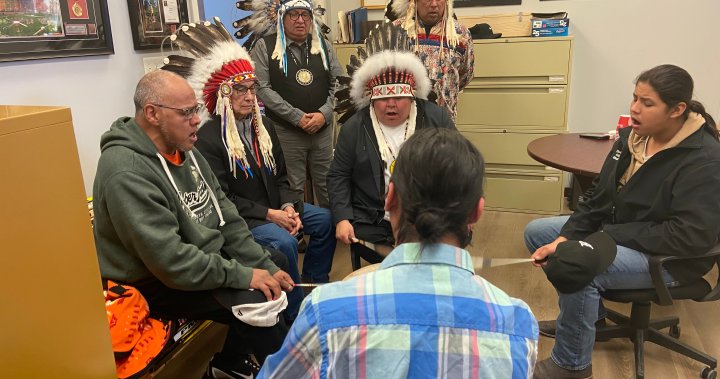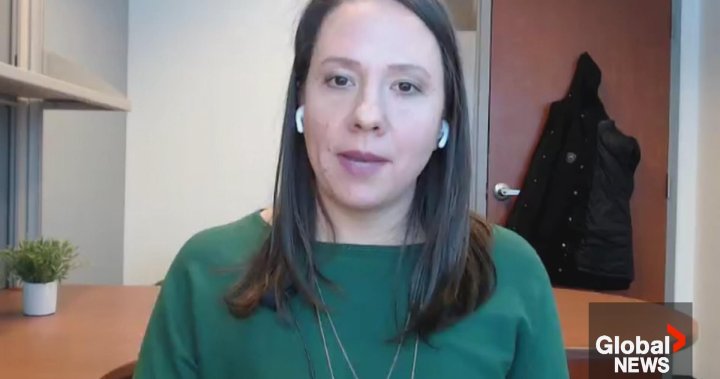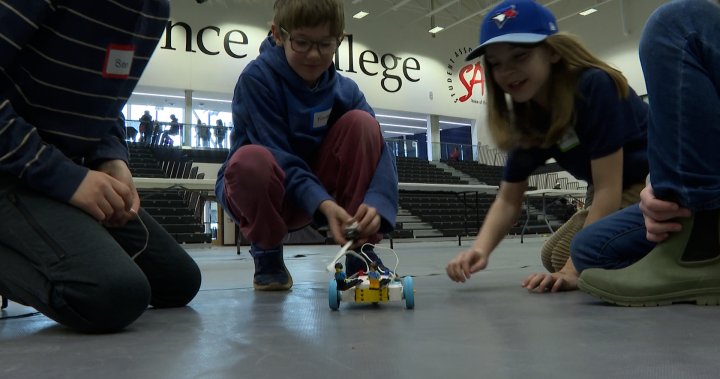Indigenous communities in Alberta say they are pleased with a recent decision by the Supreme Court of Canada. The country’s top court unanimously upheld a law giving First Nations, Metis, and Inuit people jurisdiction over child welfare.
First Nations Chiefs in Maskwacis, Alta., about 90 kilometres south of Edmonton, gathered Saturday morning to celebrate with a victory song.
Residential school survivor and former Grand Chief of the Confederacy of Treaty Six First Nations, Chief Willie Littlechild, has been advocating for Indigenous peoples for decades. He said he’s proud to see this milestone and how far Indigenous rights have come.
“It’s a very important and serious cause for, reflection, not only to look at where we’ve been and where we are today,” Littlechild said. “The main message throughout all this journey, all this legislation, the court arguments and so on is that we need to work together. We need to work together to advance reconciliation.”
The act respecting First Nations, Metis and Inuit Children and families was first passed in 2019. In 2022, Quebec won a Court of Appeal, which found parts of the act overstepped federal jurisdiction.
Get the latest National news.
Sent to your email, every day.
But in a ruling Friday, the Supreme Court of Canada stated in a lengthy document that ‘the act as a whole is constitutionally valid’.
Littlechild said implementing their laws solves a problem the community has faced for decades.
With Indigenous affairs and land reserves falling under federal jurisdiction, and child and family services falling under provincial jurisdiction, it left Indigenous children in what Littlechild describes as a ‘legislative vacuum’.
“That created a vacuum, a legislative vacuum. What about indigenous children? Where did they fall? So we argued that, well, they fall under our law,” Littlechild explained.
Chief Desmond Bull applauds the Supreme Court decision. In 2023, he signed a two-year deal with Ottawa allowing the Louis Bull Tribe to run its own child welfare system. The bilateral agreement does not involve Alberta’s provincial government.
“The numbers have definitely shifted. You know, in regards to what’s bringing our children home,” Bull mentioned. “We’re allowed to create, transition homes. So it works with the family units, with it into, with, all our services and programs, whether it’s our health services, whether it’s our Ice, it’s in human resources, our education programs, everyone is a part of that healing process,” Bull said.
He said he noticed a significant difference in the well-being of First Nations children in his community.
“When we look at everything from the residential school intergenerational trauma, (it) was a big part of who we are, is our identity. A big part of what was lost was our identity,” Bull explained. “It’s important that we start bringing our children home and start realizing the fact that we, as our own sovereign nations, have that ability to take care of ourselves. And this rule improves that, and it supports that ideology.”
While the Supreme Court ruling is limited to self-governing child and family services but Chief Bull believes this may pave a path for the federal government to allow First Nations communities to self-govern in other areas.



